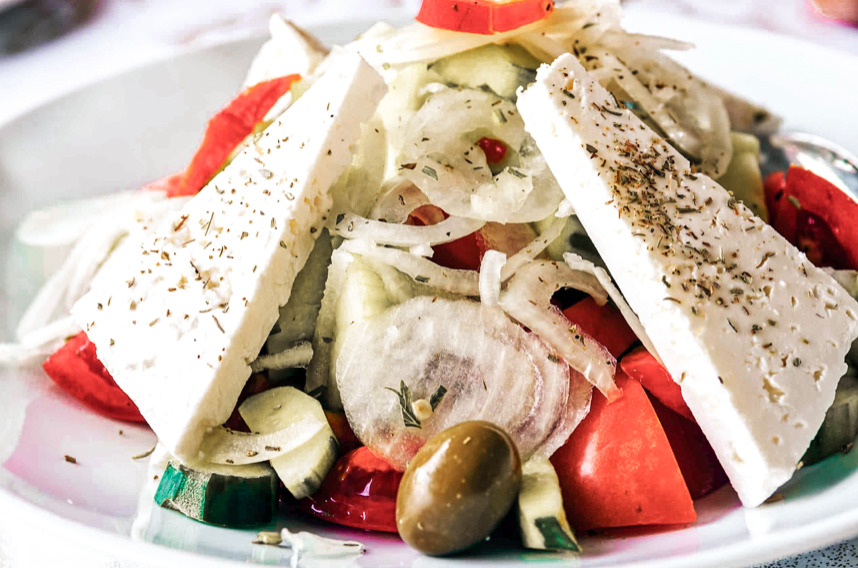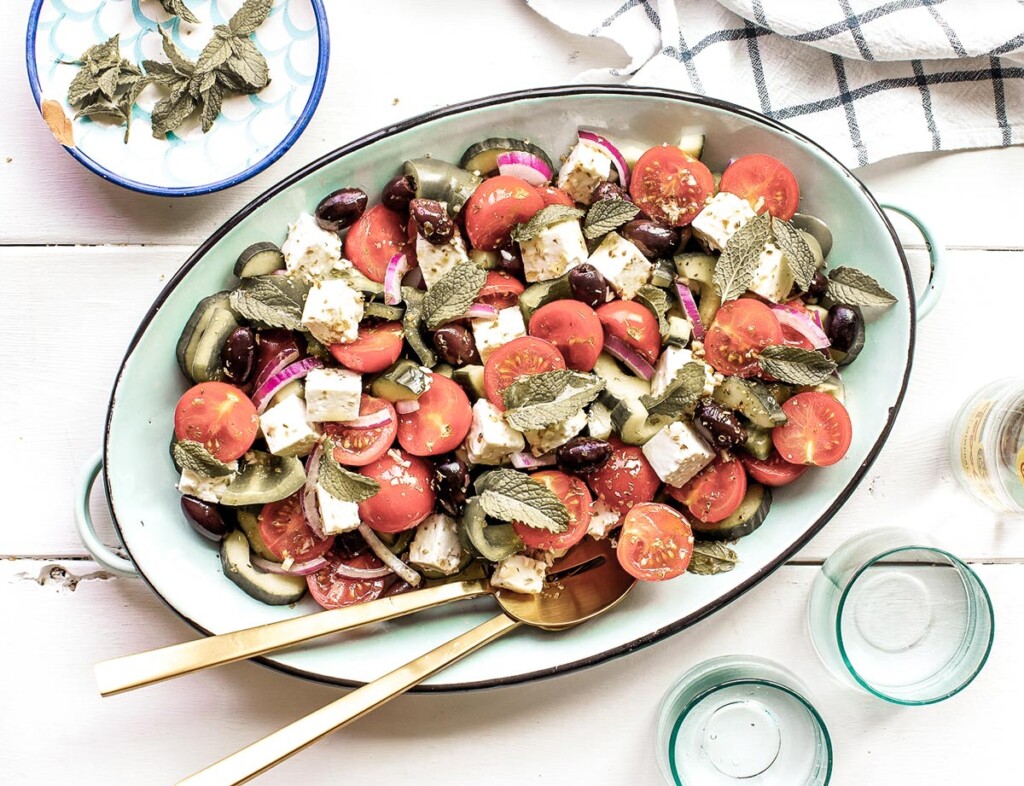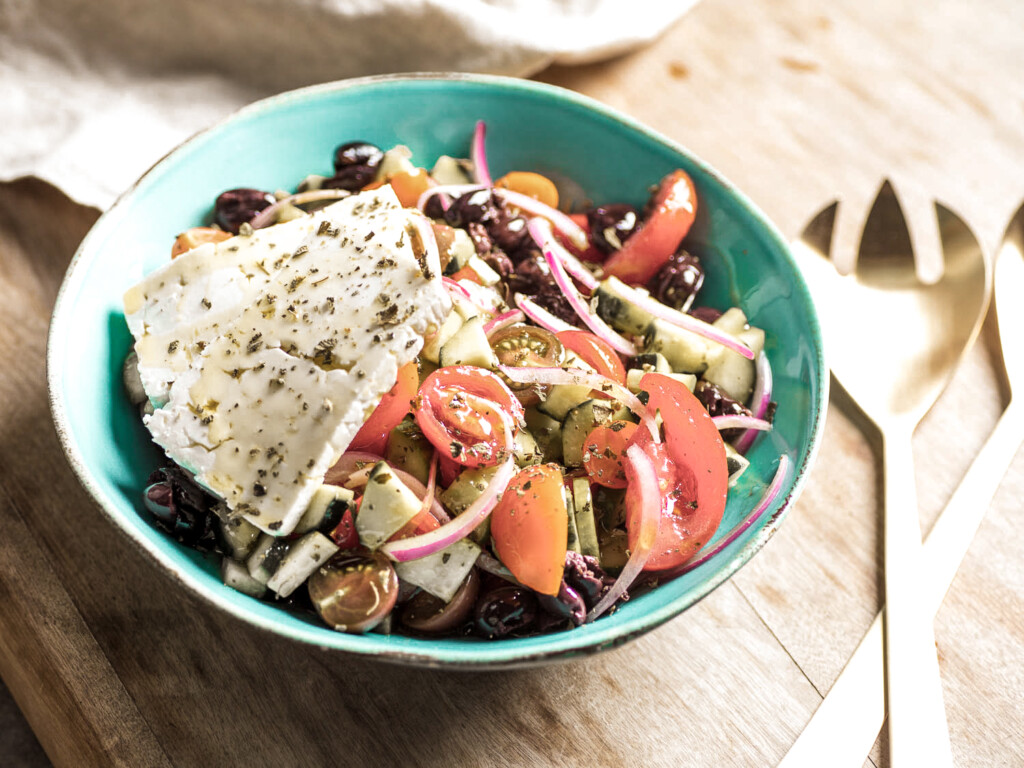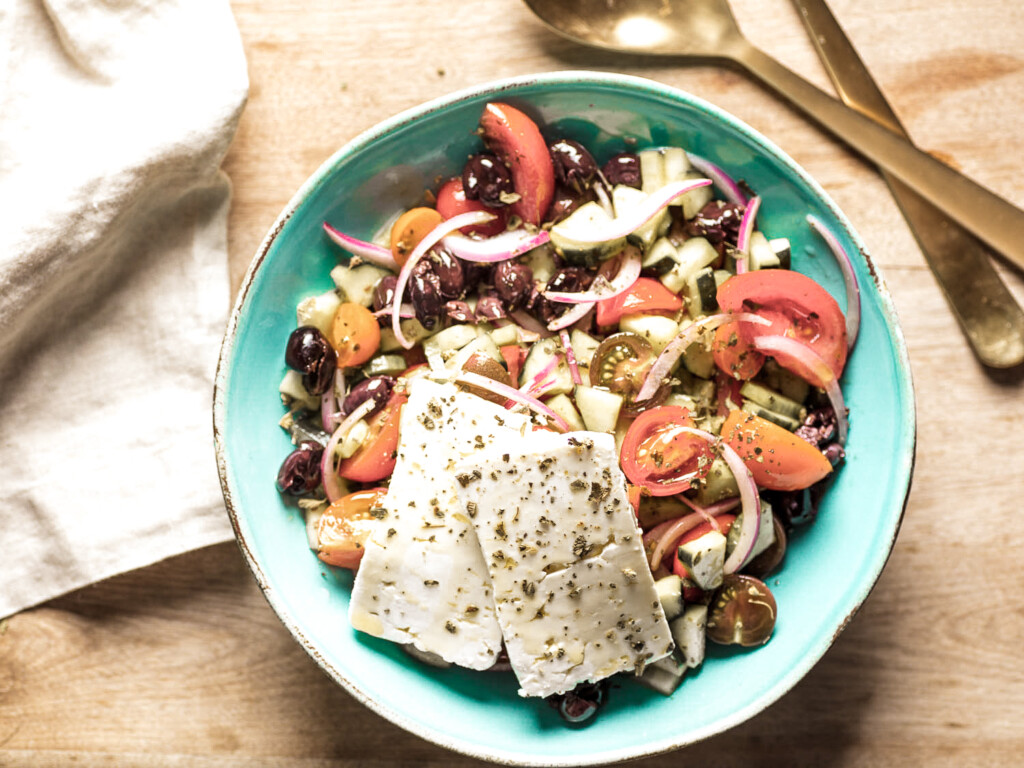Discover why this humble salad is not only a gratifying and balanced meal in itself on a hot summer’s day but a super healthy one too.
The Greek salad, or Horiatiki, which translated in Greek means ‘village salad’, was ironically born in the Greek capital rather than a Greek village. It is said to have been the invention of taverna owners in Plaka during the 1960s and ‘70s, who according to government standards were not allowed to charge for cucumber and tomato salad (much as there’s no charge for tap water today), so they added a piece of feta to the mix and voila! – a dish tourists had to pay for was invented.
With the passing of time, the salad was embellished with Kalamata olives, strips of green bell pepper and a sprinkle of oregano (today it’s common for it to be served with a sprinkle of capers and a bed of barley rusks too). There cannot be a Greek salad without slatherings of olive oil, which by the end of the meal becomes a sauce at the bottom of the plate that’s beautifully mixed with crumbs of feta, cucumber and tomato seeds and salt. At this point, it’s considered almost unorthodox not to grab a piece of a hunk of bread and dip it indulgently into the juices, in a ritual beloved to most Greeks that’s called ‘papara’. And it gets even better. This salad is a superfood dish!

Tomato
Tomatoes, which originated in central America, reached Greece as recently as the early 1800s, along with potatoes. Red, juicy, plump tomatoes sprinkled with salt are a sensory delight on a hot summer’s day and offer significant health benefits. They’re packed with antioxidants, vitamins C, K, B3, B5, B6 & B7, folate, magnesium, iron, phosphorus, zinc and potassium. When cooked they are also high in lycopene, known for its cancer-preventative qualities. They’re good for the skin, boost heart health and balance blood sugar levels. They’re ideally eaten at room temperature.
Cucumber
Cucumbers are high in water content, which makes them wonderfully hydrating on a hot summer’s day, especially if they’ve been chilling in the fridge. They contain fisetin, an anti-inflammatory substance that helps protect from age-related neurological diseases of the brain, as well as polyphenols called lignans, which are also anti-inflammatory. They also contain vitamin K and are high in insoluble fibre, which aids digestion. Tip: Don’t throw away the peels. Use them as a refreshing, pore-tightening face toner by rubbing them on well-cleansed skin.
Onion
Nutrient-dense and packed with antioxidants (with 25 varieties of flavonoid), onions are known for their medicinal properties, as is garlic, also from the Allium family. They are high in potassium, Vitamins C, B9 (folate) and B6 (pyridoxine, known for alleviating melancholy) and have strong anti-inflammatory properties that are said to prevent heart disease and lower blood pressure. They’re thought to prevent cancer, increase bone density and are considered a great antibacterial food, especially good when accompanying meat dishes as they’re said to help break down fats and clean the blood.
Green Bell Pepper (optional)
Sometimes left to the side of the plate, green bell peppers are high in fibre, Vitamins C and E.
Greek Feta
Low in fat, feta cheese is made from sheep’s and goat’s milk and is high in probiotics, which help strengthen gut health. It’s high in vitamins K, B and A, magnesium, calcium and iron so it’s good for your eyesight and boosts bone density.
Kalamata Olives
High in antioxidant phenolic compounds, which also give them their distinctively sharp flavour, these olives are also high in vitamins E, C, A, B and K, potassium, magnesium and phosphorus.
Oregano
Anti-bacterial, anti-viral and anti-microbial oregano is strong not only in its flavour but in its antioxidant effects. This anti-inflammatory herb is also thought to be good for soothing congestion.
Olive Oil
Global scientific research has repeatedly touted the numerous health benefits of Greece’s antioxidant-rich ‘liquid gold’. The monounsaturated fatty acids in olive oil (oleic acid) protect from oxidative stress, help prevent cardiovascular diseases and have anti-cancer properties. Olive oil also helps the re-mineralisation of the bones, lowers cholesterol and helps keep brain function strong while balancing hormone levels.







